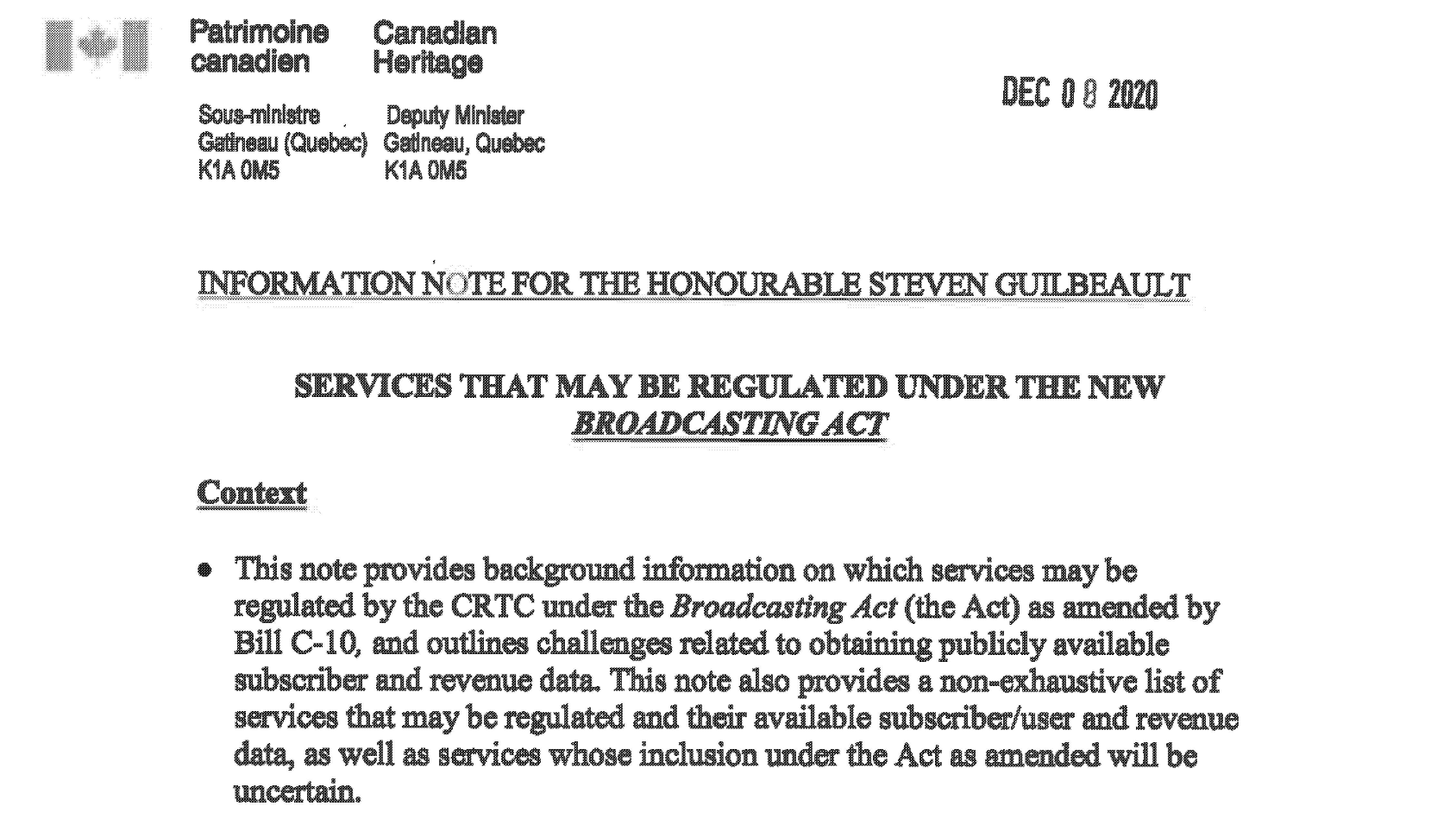Andres Guadamuz has an insightful post on the likely impact of ACTA in the UK.

Canadian Heritage Memorandum, December 8, 2020, ATIP A-2020-00498
Bill C-10
Where U.S. Law is Inconsistent with ACTA
KEI has compiled an instructive list of areas where the ACTA text appears to be inconsistent with U.S. law.
A Sampling of ACTA Reactions
There has been no shortage of reaction to the release of the latest ACTA text over the past 24 hours. USTR Ambassador Ron Kirk called it a significant victory and urged other ACTA countries to quickly complete the text. Australian officials also welcomed release of the latest text, while EU […]
ACTA Ultra-Lite: The U.S. Cave on the Internet Chapter Complete
It should also be noted that this chapter is still not concluded. The inclusion of trademarks in some provisions would seemingly require changes to U.S. law and has not acheived consensus. Further, a provision on enforcement procedures ” including the unlawful use of means of widespread distribution for infringing purposes” has not received consensus support. With respect to what has been concluded:
ACTA: Sorting Through The Spin
From the U.S. perspective, the negotiations are done and ACTA is nearly a reality. USTR Ambassador Ron Kirk has been quoted as saying that there are solutions to even the toughest issues and that nearly all parties have agreed to them. Another U.S. official admitted that there were still as many as six issues without agreement, including two on border measures and another from the Internet chapter. The EU has been even less supportive, with an official quoted as saying “we’ve come a long way but we must still close the remaining gaps without which there will be no agreement.” Moreover, several European Parliament Members are already calling for a halt to the deal. Meanwhile, Japanese officials have acknowledged that there are issues that require further discussion back home and that “in that sense we haven’t gotten agreement.”






